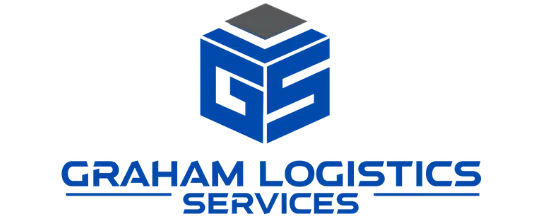Demand planning is a critical component of supply chain management that involves forecasting customer demand for a product or service. In e-commerce, demand planning plays an essential role in ensuring businesses have enough inventory to meet customer needs, while avoiding the costs of carrying excess inventory. The importance of demand planning has been highlighted even further by the COVID-19 pandemic, which caused supply shortages and demand surges across various industries, including healthcare. In this article, we will discuss demand planning in the healthcare industry, specifically managing supply and demand for critical care. We will explore the challenges faced by healthcare providers in managing demand and supply shortages, and how demand planning and forecasting can help overcome these challenges. We will also discuss the role of artificial intelligence, standardized data, and optimized inventories in building a resilient healthcare supply chain. By effectively managing supply and demand, healthcare providers can improve patient care delivery and ultimately save lives.
Understanding Demand Planning and Forecasting
Demand planning and forecasting are critical aspects of any industry, and the healthcare industry is no exception. Demand planning involves analyzing historical sales data, market trends, and other factors to forecast future demand accurately. Accurate demand forecasting is crucial for effective supply chain management and ensuring that critical supplies are always available when needed.
In the healthcare industry, effective demand planning and forecasting are especially important, given the potential for supply shortages and critical care needs. Healthcare providers must have access to the right supplies at the right time to ensure patient care and safety. This requires a comprehensive understanding of the healthcare supply chain and the unique challenges that come with managing demand in this industry.
To manage demand effectively, healthcare providers must work closely with their trading partners to optimize inventories and manage supply shortages. This requires effective communication and standardized data to ensure that everyone is working with the same information. It also requires the use of advanced technologies such as artificial intelligence and predictive analytics to forecast true demand accurately.
Several companies specialize in demand planning and forecasting solutions for the healthcare industry, including Blue Yonder. Their white paper on “Building a Resilient Healthcare Supply Chain” outlines the steps that healthcare organizations can take to develop a resilient supply chain that can withstand demand surges and other disruptions.
In summary, demand planning and forecasting are critical components of healthcare supply chain management. Effective demand management requires a deep understanding of the healthcare industry, advanced technologies, and effective communication with trading partners. In the following sections, we will explore some of the specific challenges that healthcare providers face when managing demand and supply chain, and strategies to overcome them.
Importance of Effective Demand Planning in Healthcare
Effective demand planning is crucial in healthcare to ensure that patients receive the right care at the right time. The healthcare industry is constantly evolving, with advances in technology and new treatment options, making it challenging for healthcare providers to predict future demand accurately.
The COVID-19 pandemic has further highlighted the importance of demand planning in healthcare. The sudden surge in demand for critical supplies such as personal protective equipment (PPE), ventilators, and other medical equipment caught many healthcare providers off-guard, leading to supply shortages and compromised patient care.
Effective demand planning enables healthcare providers to optimize inventories, reduce costs, and improve patient safety. By accurately forecasting demand, healthcare providers can ensure that critical supplies are available when and where they are needed, minimizing the risk of supply shortages and protecting patients and staff.
Moreover, demand planning and forecasting play a critical role in improving efficiency and streamlining care delivery. With a clear understanding of future demand, healthcare providers can optimize patient flow, reduce wait times, and ensure that care is provided in a timely and effective manner.
In summary, effective demand planning is essential in the healthcare industry to ensure that patients receive the care they need when they need it. With accurate demand forecasting, healthcare providers can optimize inventories, reduce costs, and improve patient safety and care delivery.
Supply Chain Management in Healthcare
In healthcare, supply chain management involves the planning, procurement, storage, and distribution of medical supplies, drugs, and devices to ensure that patients receive the necessary care. The goal of supply chain management is to ensure that the right product is available in the right quantity, at the right time, and at the right place. Supply chain management plays a vital role in ensuring the efficient delivery of medical supplies and devices to healthcare facilities, including hospitals, clinics, and nursing homes.
Effective supply chain management in healthcare requires collaboration between manufacturers, suppliers, distributors, and healthcare providers. It involves managing inventory levels, reducing waste, and minimizing costs while ensuring that critical supplies are readily available to meet the needs of patients. Efficient supply chain management can help healthcare providers improve patient care, reduce costs, and increase profitability.
In recent years, healthcare supply chains have faced numerous challenges, including supply shortages, demand surges, and the COVID-19 pandemic. These challenges have highlighted the importance of a resilient supply chain and the need for effective demand planning and forecasting. By optimizing inventories, automating supply chain processes, and leveraging advanced technologies like artificial intelligence and standardized data, healthcare providers can ensure that they have the necessary supplies to meet patient needs while improving efficiency and reducing costs.
Overcoming Demand Planning Challenges in Healthcare
Demand planning in healthcare can be challenging due to various factors. However, with the right approach and tools, these challenges can be addressed effectively. One of the primary challenges is the unpredictability of patient demand, which can lead to supply shortages or overstocking. Healthcare providers must stay agile and resilient to overcome these challenges and ensure patient care is not compromised.
Another challenge is the lack of standardized data and processes across healthcare systems, making it difficult to share information and optimize inventories. In addition, the COVID-19 pandemic has exacerbated demand surges, putting pressure on the healthcare industry to keep up with the demand for critical supplies such as protective equipment, medical devices, and critical care.
To overcome these challenges, healthcare providers can implement effective demand planning and forecasting strategies, leveraging advanced technologies such as artificial intelligence and machine learning. By using these tools, healthcare providers can analyze historical data and patient trends to anticipate future demand and optimize supply chain processes.
Another effective solution is to automate supply chain processes, such as ordering and replenishment, to reduce manual errors and streamline workflows. Healthcare providers can also collaborate with trading partners to share data and optimize inventories across the supply chain.
Moreover, healthcare providers can improve demand planning and forecasting by investing in standardized data and processes across healthcare systems. This can help create a resilient supply chain that can withstand future disruptions and improve patient care delivery.
By overcoming these demand planning challenges, healthcare providers can improve efficiency, reduce costs, and most importantly, provide optimal patient care. It requires leadership teams to prioritize effective demand planning and forecasting and make it a part of the healthcare industry’s standard operating procedures.
Role of Artificial Intelligence in Demand Planning for Healthcare
Artificial intelligence (AI) has revolutionized the healthcare industry, and it can play a crucial role in demand planning as well. AI can help healthcare organizations to analyze large amounts of data in real-time to identify patterns, predict future demand, and optimize inventories. This helps organizations to prepare for future demand surges, avoid supply shortages, and improve patient care delivery. AI can automate supply chain management and demand forecasting, freeing up healthcare professionals to focus on patient care. With AI-powered demand planning and forecasting, healthcare organizations can ensure that they have the critical supplies they need when they need them, improving efficiency and patient safety. AI can also help to standardize data across healthcare systems, making it easier to share information and collaborate with trading partners. Overall, AI has the potential to create a more resilient supply chain, improve patient care, and reduce costs for healthcare providers.
Success Stories of Resilient Supply Chains in Healthcare
Effective demand planning is a crucial element of building a resilient supply chain in healthcare. Several healthcare providers have demonstrated the importance of proactive measures in ensuring an uninterrupted supply chain during times of crisis. The Mayo Clinic, for example, proactively managed its supply chain during the COVID-19 pandemic by forecasting future demand and optimizing inventory management. By automating supply chain processes and using standardized data, the organization could quickly respond to the changing demand landscape and ensure that it had enough critical supplies such as personal protective equipment (PPE) and medical devices.
Another success story is that of Mediclinic Middle East, which adopted an advanced digital platform to optimize supply chain processes. This platform provided real-time data insights that enabled the leadership team to make informed decisions about inventory management and demand forecasting. By using artificial intelligence and machine learning algorithms, Mediclinic was able to predict future demand accurately and plan accordingly, ensuring that it had sufficient supplies to provide quality patient care.
These success stories demonstrate the critical role that effective demand planning and resilient supply chains play in ensuring the continuity of care delivery in healthcare. Organizations that prioritize demand planning and forecasting are better equipped to handle future demand surges and supply shortages, leading to improved patient safety, satisfaction, and overall better healthcare outcomes.
Future Outlook for Demand Planning in Healthcare
Demand planning has become increasingly important for healthcare organizations due to the ever-changing healthcare industry. Future outlook for demand planning in healthcare looks promising with the advancements in technology and the growing importance of supply chain management.
As artificial intelligence and machine learning continue to improve, the use of predictive analytics will become more prevalent in demand planning for healthcare. Predictive analytics can assist healthcare organizations in identifying demand trends and forecasting future demand with greater accuracy.
Another area that is expected to impact demand planning in healthcare is the growing importance of sustainability. Healthcare organizations will need to adopt more sustainable practices to reduce their carbon footprint and to ensure that they are using resources in a responsible and ethical manner. This will lead to the development of new processes and strategies for demand planning, such as the use of eco-friendly materials and the reduction of waste.
The COVID-19 pandemic has highlighted the importance of agile and resilient supply chains in healthcare. In the future, healthcare organizations will need to focus on building more resilient supply chains that can quickly respond to disruptions and ensure that essential medical supplies and equipment are available when needed.
In conclusion, demand planning plays a crucial role in the healthcare industry, and it will continue to grow in importance as healthcare organizations adapt to new technologies and strive for more sustainable and resilient supply chains. With the integration of advanced technologies such as artificial intelligence and the growing focus on sustainability and resilience, the future outlook for demand planning in healthcare is bright.
Conclusion
In conclusion, demand planning and forecasting play a crucial role in healthcare operations management. By effectively managing demand, healthcare organizations can ensure that they have the necessary resources and equipment to meet patient needs, minimize waste, and optimize their supply chains. The challenges in demand planning can be addressed by leveraging technology, such as AI and machine learning algorithms. The success stories of resilient supply chains in healthcare demonstrate the importance of supply chain resilience in times of crisis, and the future outlook for demand planning in healthcare is promising, with the potential for further innovation and optimization. By embracing new technology and strategies, healthcare organizations can continue to improve their demand planning and supply chain management practices, ultimately benefiting patients and the healthcare industry as a whole.


